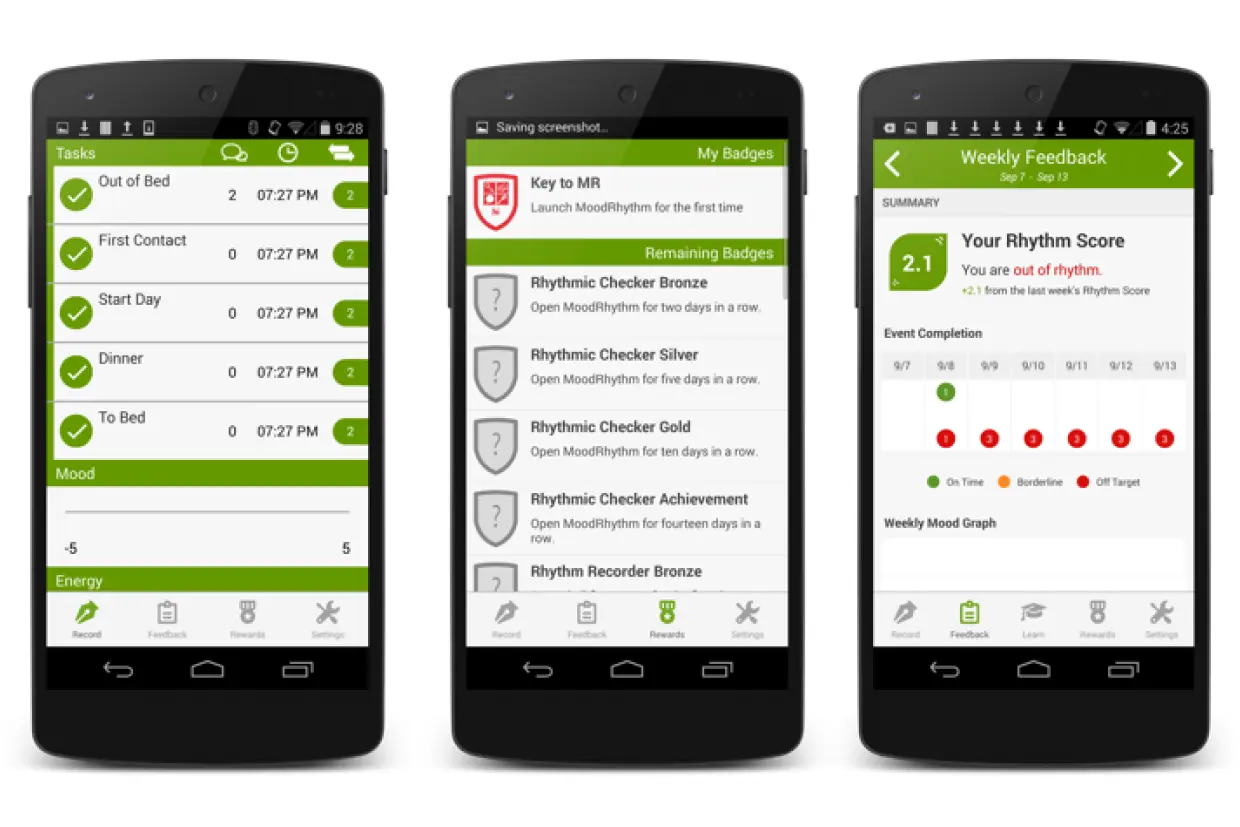Rhythms guide our lives. Our biological clocks tell us when we need to sleep, eat and wake. But our use of technology can interrupt and obstruct these rhythms, making it difficult for our bodies to get what they need to stay healthy and balanced.
MoodRhythm helped individuals with bipolar disorder to live a more naturally rhythmic day, ensuring that they can maintain balanced and healthy lives.
It was based on a clinically validated therapy, Interpersonal Social Rhythm Therapy, developed by Dr. Ellen Frank at University of Pittsburgh.
MoodRhythm used patients’ smartphones to both actively and passively track daily rhythms and to provide affective feedback that can help patients to maintain a regular daily rhythm, while feeding this clinically valuable information back to their physicians.
Awards
Winner of the 2013 open mHealth Challenge - http://openmhealth.org/events/heritage-open-mhealth-challenge/
Articles
Matthews, M., Abdullah, S., Murnane, E., Voida, S., Choudhury, T., Gay, G., & Frank, E. (2016). Development and evaluation of a smartphone-based measure of social rhythms for bipolar disorder. Assessment, 23(4), 472-483.
Matthews, M., Voida, S., Abdullah, S., Doherty, G., Choudhury, T., Im, S., & Gay, G. (2015, August). In situ design for mental illness: Considering the pathology of bipolar disorder in mhealth design. In Proceedings of the 17th International Conference on Human-Computer Interaction with Mobile Devices and Services (pp. 86-97).
Voida, S., Matthews, M., Abdullah, S., Xi, M., Green, M., Jang, W. J., … & Choudhury, T. (2013, September). Moodrhythm: tracking and supporting daily rhythms. In Proceedings of the 2013 ACM conference on Pervasive and ubiquitous computing adjunct publication (pp. 67-70).






